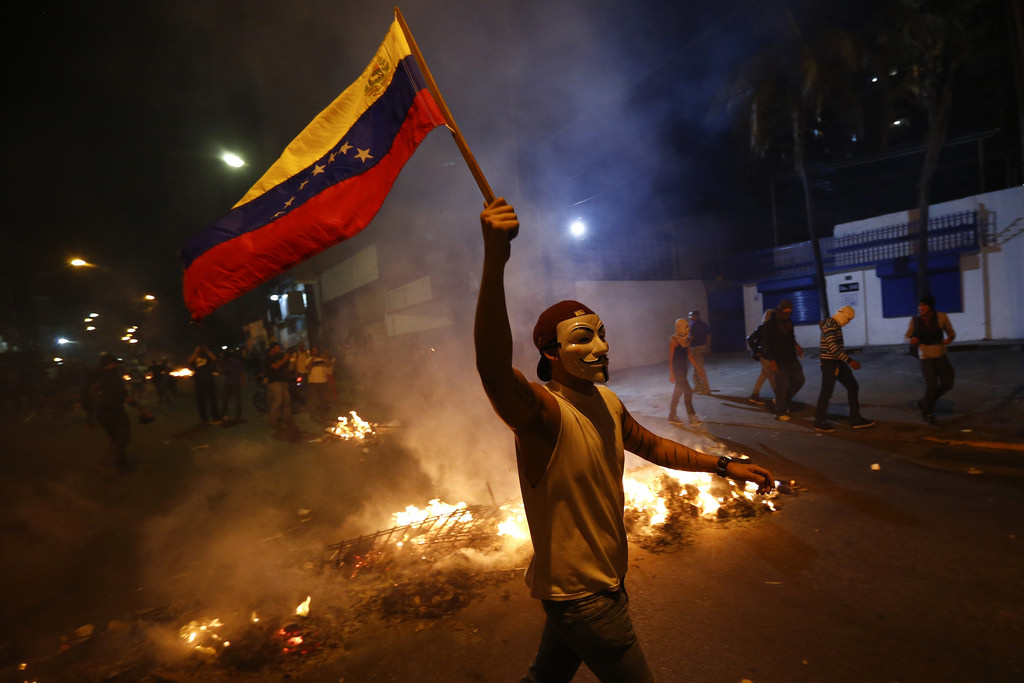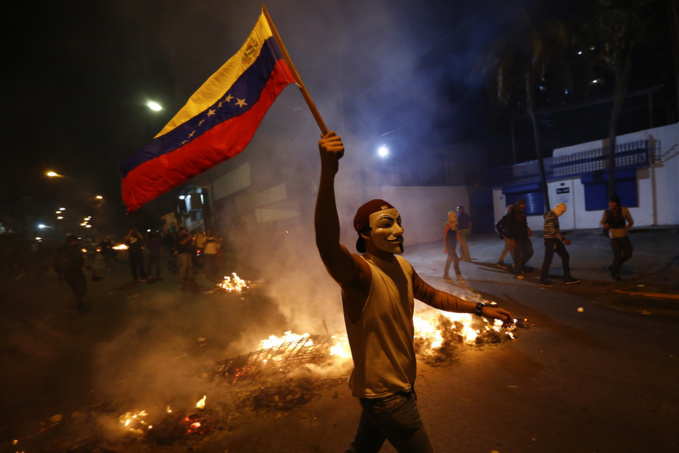According to experts, writes the London Independent, the Venezuelan oil industry is now working only on 40% of its capabilities. In March, the International Energy Agency (IEA) reported that it continues to view Venezuela as the world's largest risk for global supplies of raw materials, which may soon create a deficit of oil on the market.
The speed with which the situation in the oil sector is deteriorating makes a strong impression. For example, in February, oil production by Venezuelan oil companies, declined on average by 100 thousand barrels per day, according to Bloomberg. Central University of Venezuela says that oil production in the country has now reached an absolute minimum over the past 70 years.
Most of the Venezuelan oil fields produce heavy oil, which must be diluted with lighter grades before shipping to customers. By the way, Caracas began to import solvents for the first time in the history of the country's oil industry as early as 2016. Two years have passed since then. During this time, purchases of light grades of oil, according to Francisco J. Monaldi, an expert in Latin American energy at Texas Rice University, rose to 200,000 barrels per day.
Long lines for food and medicine in Venezuela are not surprising anymore. However, even some years ago, when a liter of gasoline cost $ 0.01, it was very difficult to imagine long lines of cars at gas stations. Now they are a common thing. In Venezuela, oil is still cheaper than drinking water, but the oil industry can no longer satisfy even the domestic needs of the country. On the other hand, oil must be exported to support the collapsing economy. Mr. Monaldi is confident that if oil production falls below a million bpd, the consequences for the Venezuelan economy will be catastrophic.
The only hope for serious changes lies in the economic course of the country. Analysts of the sociological organization IVAD, specializing in population surveys, believe that the chances of President Nicolás Maduro at the forthcoming elections in May do not look very promising. 77% of the survey participants believe that Venezuela needs a new government. The IMF forecasts for Venezuela a decline in production in the region of 15% in 2018. According to many economists, Caracas expects a record decline in GDP in Latin America.
Oil plays a huge role in Venezuela's economy as it accounts for 90% of the country's total exports. Therefore, the collapse of the oil industry will strike a knockout blow to the entire Venezuelan economy.
The situation in Venezuela has deteriorated so much that Venezuelans are fleeing to neighboring countries in large numbers. 10% of the population live abroad now. At least one person in almost two thirds of families has already emigrated. The situation is complicated by the fact that among the three million migrants the overwhelming majority are young people and a skilled workforce. This further worsens the situation in the economy.
source: independent.co.uk
The speed with which the situation in the oil sector is deteriorating makes a strong impression. For example, in February, oil production by Venezuelan oil companies, declined on average by 100 thousand barrels per day, according to Bloomberg. Central University of Venezuela says that oil production in the country has now reached an absolute minimum over the past 70 years.
Most of the Venezuelan oil fields produce heavy oil, which must be diluted with lighter grades before shipping to customers. By the way, Caracas began to import solvents for the first time in the history of the country's oil industry as early as 2016. Two years have passed since then. During this time, purchases of light grades of oil, according to Francisco J. Monaldi, an expert in Latin American energy at Texas Rice University, rose to 200,000 barrels per day.
Long lines for food and medicine in Venezuela are not surprising anymore. However, even some years ago, when a liter of gasoline cost $ 0.01, it was very difficult to imagine long lines of cars at gas stations. Now they are a common thing. In Venezuela, oil is still cheaper than drinking water, but the oil industry can no longer satisfy even the domestic needs of the country. On the other hand, oil must be exported to support the collapsing economy. Mr. Monaldi is confident that if oil production falls below a million bpd, the consequences for the Venezuelan economy will be catastrophic.
The only hope for serious changes lies in the economic course of the country. Analysts of the sociological organization IVAD, specializing in population surveys, believe that the chances of President Nicolás Maduro at the forthcoming elections in May do not look very promising. 77% of the survey participants believe that Venezuela needs a new government. The IMF forecasts for Venezuela a decline in production in the region of 15% in 2018. According to many economists, Caracas expects a record decline in GDP in Latin America.
Oil plays a huge role in Venezuela's economy as it accounts for 90% of the country's total exports. Therefore, the collapse of the oil industry will strike a knockout blow to the entire Venezuelan economy.
The situation in Venezuela has deteriorated so much that Venezuelans are fleeing to neighboring countries in large numbers. 10% of the population live abroad now. At least one person in almost two thirds of families has already emigrated. The situation is complicated by the fact that among the three million migrants the overwhelming majority are young people and a skilled workforce. This further worsens the situation in the economy.
source: independent.co.uk



















